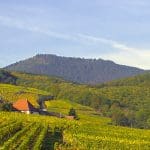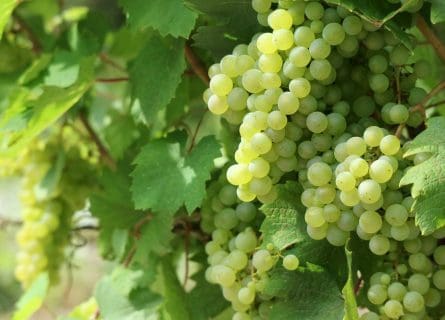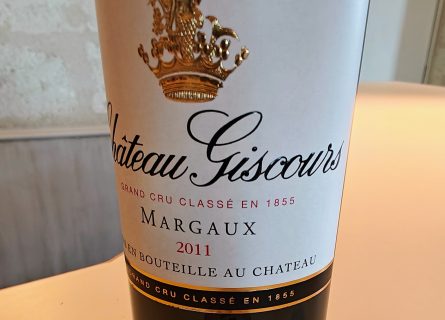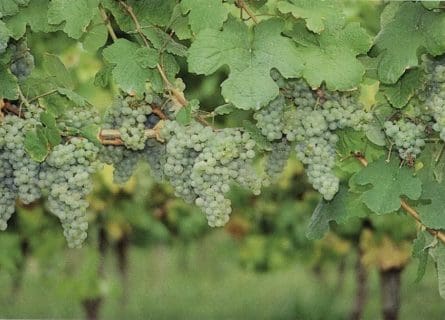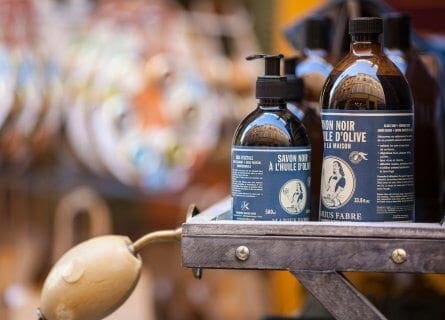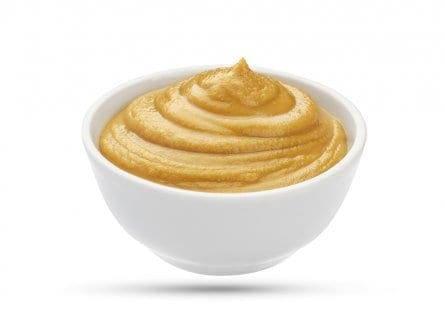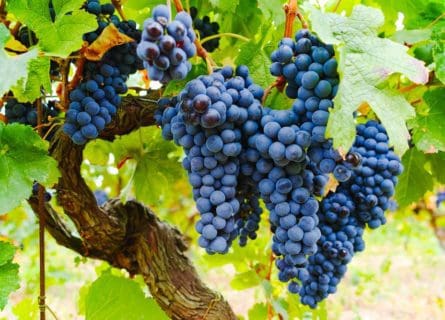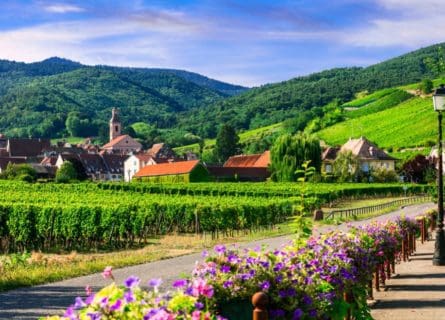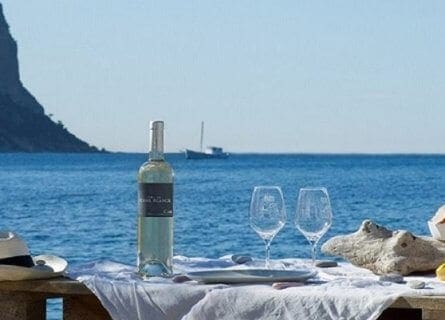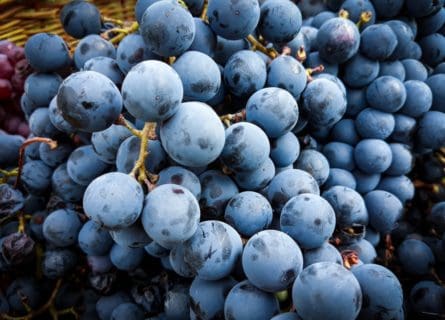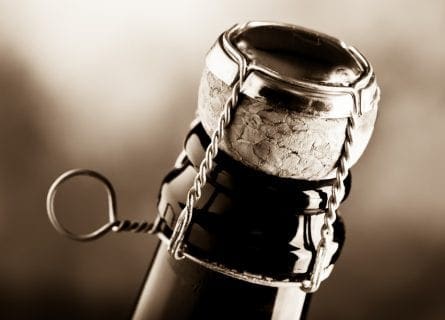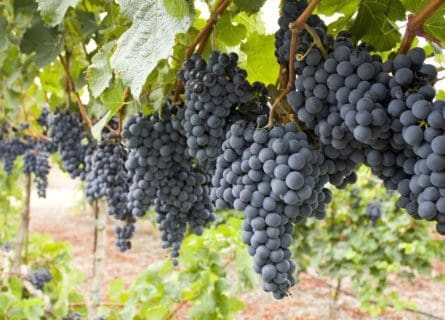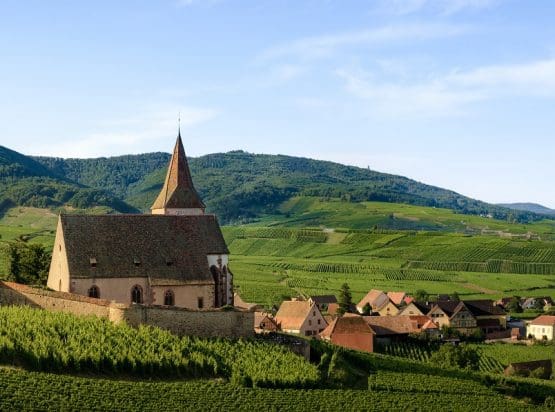
Jean-Baptiste Adam Winery Guide
EXPLORE ALL OUR RECOMMENDED FRENCH WINERIES
Last updated: November 24, 2023
Winery Overview
This wine estate tests a critic’s ability to remain balanced and objective. Indeed, it is hard for any wine lover to stay neutral about such a charismatic and engaging winemaking family or their excellent range of terroir-driven, delicious wines. This family has been writing the history of Alsatian wine for over four centuries. Today run by the 15th generation, that legacy shows no signs of slowing down.
The winery was founded in 1614 by the original Jean-Baptiste Adam in the Haut-Rhin village of Ammerschwihr in the Alsace wine region. Flanked by the granite slopes of the Grand Cru vineyard ‘Kaefferkop,’ his success seemed assured. Quickly building a reputation for the quality of his wines, restauranteurs in Ammerschwihr would queue up to taste the barrel samples to best select a match for their dishes. Over the centuries, the firm’s reputation grew, overcoming the many historical obstacles thrown in its way. Jean-Baptiste Adam survived the Thirty Years War (1618-1648), the French Revolution, and the Napoleonic wars, thriving despite prolonged periods of political turbulence. At the end of the 19th century, the firm embarked upon its first significant cellar expansion before shipping its first bottles to the US in 1871.
Unfortunately, the outbreak of the Two World Wars caused significant setbacks. During WWI, Alsace was annexed by Germany and returned following the peace treaty of Versailles. However, during World War II, the estate was deemed hostile to German forces and was forbidden from selling any wine during the war. Many citizens of Ammerschwihr took refuge in the cellar during the Allied bombing campaigns. As a result, the cellar was spared the ravages of war – the old wooden casks are still in use today. After the end of the war, 13th-generation Jean Adam helped the region get back on its feet, once again exporting Alsatian wines worldwide. The construction of a new cellar in 1967 only aided their cause – 14th-generation Jean-Baptiste took over in 1996, although he started working at the winery in 1982. Today he pushes forward remarkably progressive stewardship, working with his daughter Laure, the marketing genius behind Jean-Baptiste Adam’s recent success. The central hallmarks of their wines are respected for terroir, the introduction of biodynamic viticultural practices in 2003, and a ‘non-interventionist’ regime in the cellar, which involves only using wild yeasts and refraining from filtration. As a result, the wines are magnificent: structured, aromatically complex, and long-lived. Without any hyperbole, it would be fair to say they’re among France’s best.
Wines produced
-
Sylvaner Tradition 2018
100% Sylvaner. Grapes are hand harvested and fermented using natural yeast. Fermented in wooden foudres. Filtration is generally avoided. The wine is bottled relatively soon after harvest to maintain freshness. -
Riesling Reserve 2016
100% Riesling. Grapes are hand harvested and fermented using natural yeast. Fermented in wooden foudres. Filtration is generally avoided. Approachable on release, the Riesling Reserve can be cellared for at least 5 years. -
Pinot Noir Reserve 2016
100% Pinot Noir. Grapes are hand harvested and fermented using natural yeast. Fermented in wooden foudres. Filtration is generally avoided. Approachable on release, the Pinot Noir Reserve can be cellared for at least 5 years. -
Pinot Gris Reserve 2016
100% Pinot Gris. Grapes are hand harvested and fermented using natural yeast. Fermented in wooden foudres. Filtration is generally avoided. Approachable on release, the Pinot Gris Reserve can be cellared for at least 5 years. -
Pinot Gris “Les Natures” 2016
100% Pinot Gris. Grapes are hand harvested and fermented using natural yeast. The viticultural methods are very eco-friendly - these wines are produced without pesticides or the use of man-made chemicals. Filtration is generally avoided. -
Alsace Grand Cru Riesling Kaefferkopf 2015
100% Riesling. Produced from Grand Cru grapes - hand harvested and fermented using natural yeast. Fermented in wooden foudres. Filtration is generally avoided. Approachable on release, the Grand Cru Riesling can be cellared for at least 10 years. -
Alsace Grand Cru Gewürztraminer Kaefferkopf 2016
100% Gewürztraminer. Produced from Grand Cru grapes - hand harvested and fermented using natural yeast. Fermented in wooden foudres. Filtration is generally avoided. Approachable on release, the Grand Cru Gewürztraminer can be cellared for at least 10 years. -
Alsace Grand Cru Le Riesling Kaefferkopf "Vieilles Vignes" 2015
100% Riesling. Produced from Grand Cru grapes - hand harvested and fermented using natural yeast. Filtration is generally avoided. Fermented in wooden foudres. Approachable on release, the Grand Cru Riesling can be cellared for at least 10 years. -
Pinot Gris Vendages Tardives 2015
100% Pinot Gris. Produced in exceptional years from a selection of over-ripened grapes that are also affected with botrytis, sourced from exceptional vineyards. Hand harvested grapes are fermented using natural yeast. Fermented in wooden foudres. Filtration is generally avoided. Limited production, this wine is suitable for extended cellaring. A dessert wine style. -
Cremant d'Alsace Emotion
95% Chardonnay, 5% Pinot Noir. Grapes are hand harvested and fermented using natural yeast. Fermented in wooden foudres. A traditional method sparkling wine, the wines are fermented in bottle, aged and then disgorged before release. The perfect aperitif!
Winery Contact Details
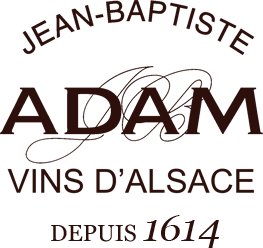
Jean-Baptiste Adam
5 Rue de l'Aigle68770, Ammerschwihr
France
Email: [email protected]
Tel +33 (0) 3 89 78 23 21
Fax Find out more
Facts & Figures
Appellation
AOC Alsace
Founded
1614
Area under Vine
20 hectares
Age of vines
Oak barrel origin
Winemaker
Jean-Baptiste Adam
Owner
Adam Family
Production
150,000 bottles from their domaine wines
Grape varietals
Sylvaner, Riesling, Pinot Blanc, Pinot Gris, Muscat, Pinot Noir, Gewürztraminer
Grape Varieties Used by the Winery
-
Gewürztraminer
Explore Gewurztraminer, a highly aromatic white grape from Alsace, France. Savor its unique character and allure in every sip
Find out more -
Muscat
Muscat blanc is a white wine grape varietal popular in the Muscat d'Alsace, Moscato d'Asti and Beaumes-de-Venise regions.
Find out more -
Pinot Blanc
Pinot blanc is a white wine grape varietal, that is a mutation of Pinot noir grape. It is planted in mostly Alsace, Germany and Northern Italy.
Find out more -
Pinot Gris
Pinot Gris is a white-wine grape variety originally from Burgundy. It is thought to be a mutant clone of Pinot Noir.
Find out more -
Riesling
Discover Riesling's charm, a white grape from Germany's Rhine region, cherished in Alsace, France. Unveil its secrets and delights
Find out more -
Sylvaner
he Sylvaner grape is a white wine grape variety with a rich history in Central Europe, particularly in Alsace and Germany. Known for its crisp and refreshing wines, Sylvaner exhibits flavors of green apple, citrus, and stone fruits, accompanied by floral and herbal notes. It thrives in cooler climates and is adaptable to various terroirs
-
Pinot Noir
Pinot noir is a light-bodied red wine varietal closely related to the Vitis vinifera grape and produces the most sought-after red wines in the world.
Find out more
Winery Appellations
-
 Discover Alsace, the unique French vineyard blending French elegance & Germanic charm. Home to signature Riesling and scenic villages. Plan your trip today! Read more
Discover Alsace, the unique French vineyard blending French elegance & Germanic charm. Home to signature Riesling and scenic villages. Plan your trip today! Read more
Further Reading: Discover More Related Blog Content
More information
If you would like us to customize an exclusive luxury tour, contact us and let us know your travel plans. We offer luxury food and wine tours for private groups of a minimum two guests. In addition, all of our private, chauffeured tours are available year-round upon request.

